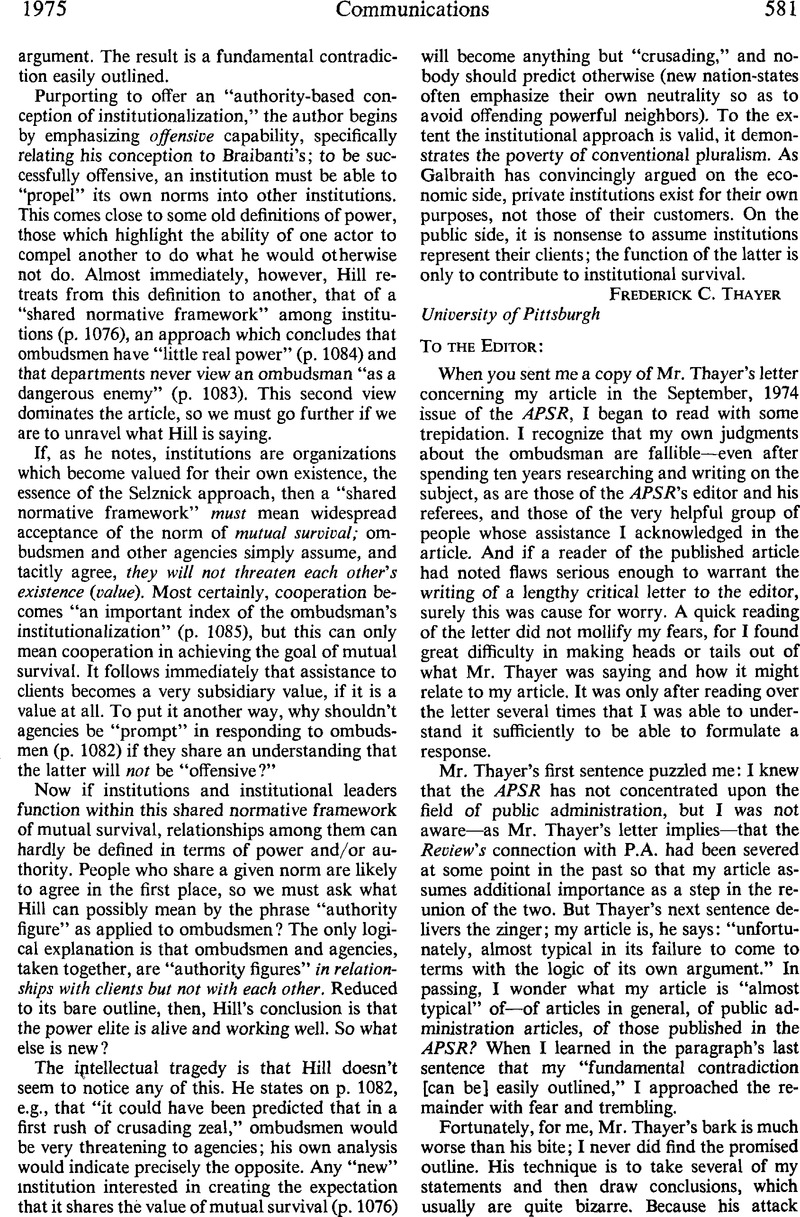No CrossRef data available.
Article contents
[no title]
Published online by Cambridge University Press: 01 August 2014
Abstract

- Type
- Communications
- Information
- Copyright
- Copyright © American Political Science Association 1975
References
1 Parenthetically, it is not, as Thayer contends, the latter approach which led me to the conclusion that ombudsman have little real power; that is simply an empirical circumstance based upon their legal limitations. A further point of fact: I did not say that departments “never” view the ombudsman as a dangerous enemy; there are times when they have done so, and I have written about such cases.
2 For a more extensive treatment than is provided in the article under discussion of the relationship of the ombudsman to these concepts and for a citation of much relevant literature, see my article: “The New Zealand Ombudsman's Authority System,” Political Science, 20 (09, 1968), 40–51CrossRefGoogle Scholar.
3 See Hill, Larry B., “Affect and Interaction in an Ambiguous Authority Relationship: New Zealand's Bureaucrats and the Ombudsman,” Journal of Comparative Administration, 4 (05, 1972), 35–58CrossRefGoogle Scholar.
4 Chapter 8 of my unpublished manuscript, “The Model Ombudsman: New Zealand's Democratic Experiment.”
5 For a lengthy elaboration of these matters see Chapter 2 of my forthcoming book, Ombudsmen, Bureaucracy, and Democracy (New York: Oxford University Press, 1976)Google Scholar.



Comments
No Comments have been published for this article.